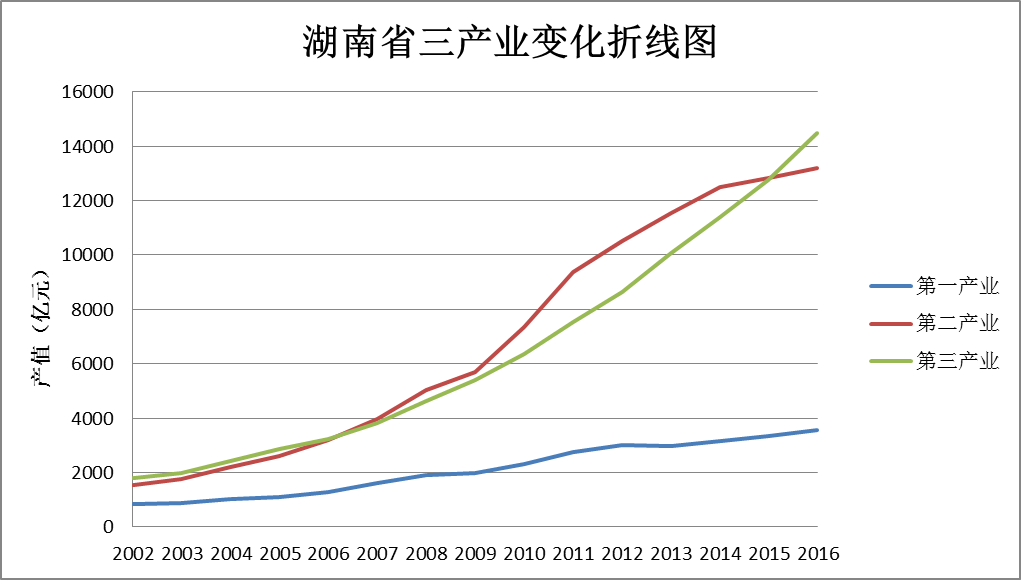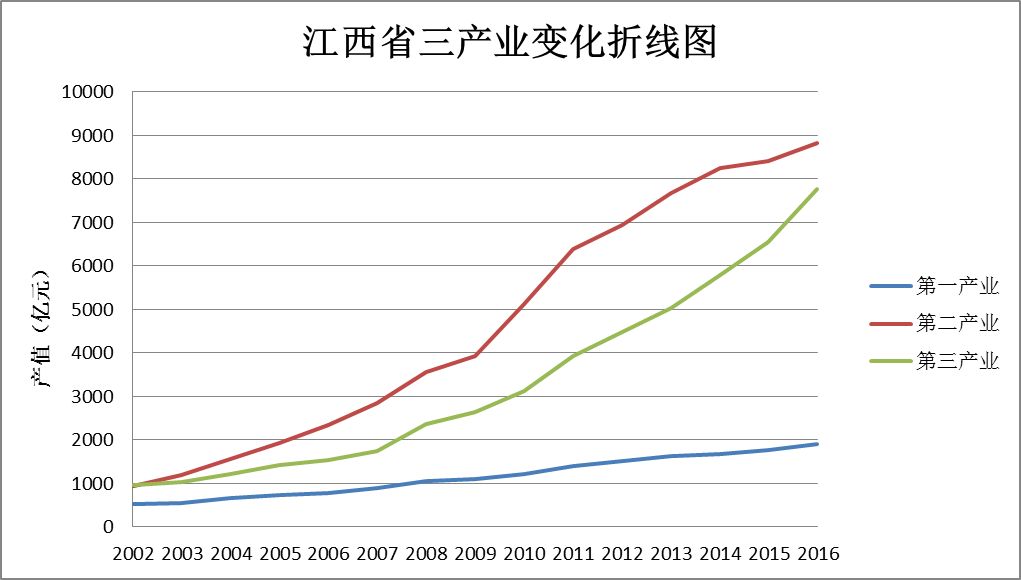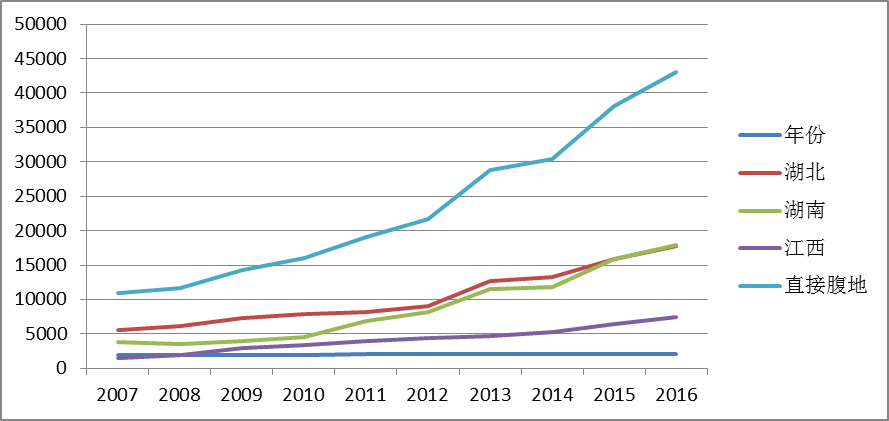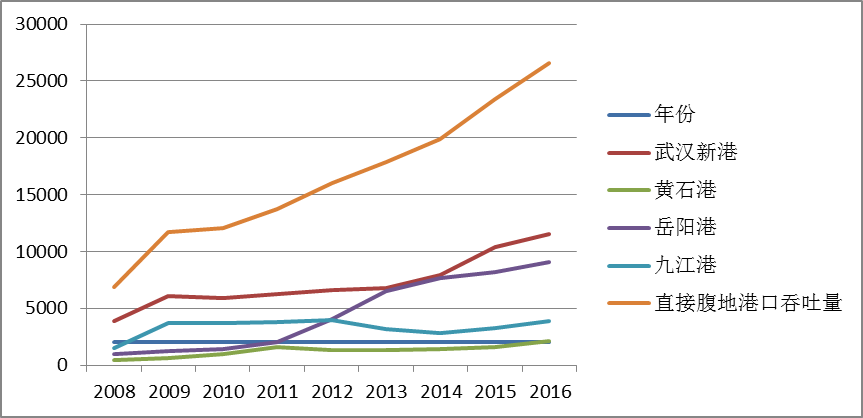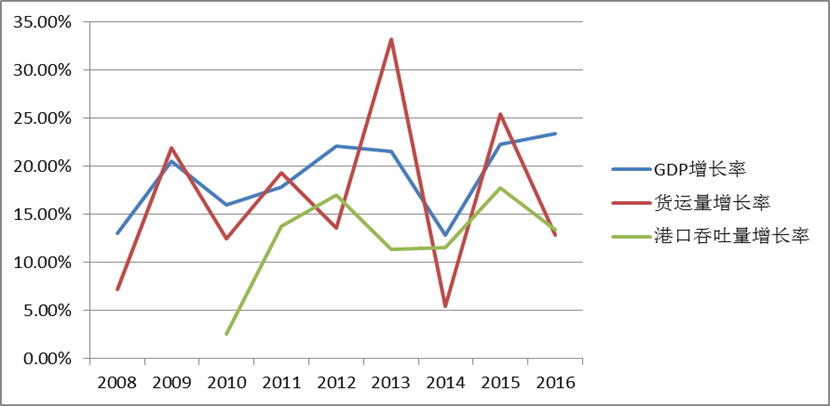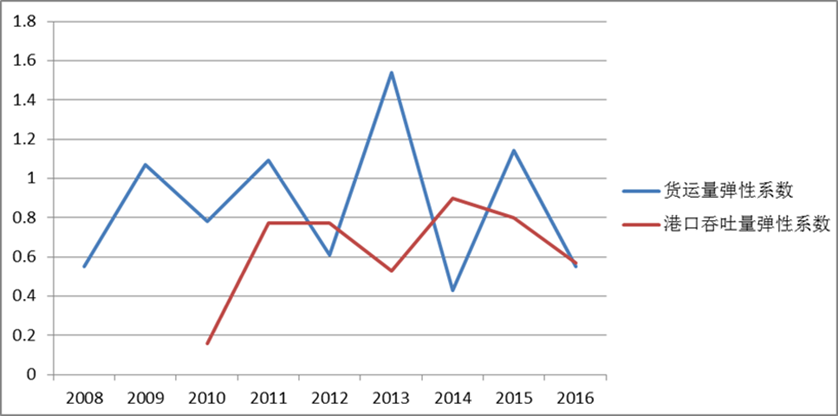长江中游航道水深与航运适应性研究毕业论文
2020-04-12 08:48:08
摘 要
港口是社会经济发展的枢纽,而航道是港口航运发展的主干线,是航运发展的重要基础设施。加深长江中游航道水深能够缩短航程,避免减载和转运环节,大幅减低单位运输成本,每年可节省大量的运费与时间,社会经济效益明显;同时航道可以适应船舶大型化趋势,大幅降低长江经济带的物流成本,增强相关企业的竞争力。而现如今由于缺乏系统科学的整治,长江中游航道不适应性日益显著,其通而不畅的现状对沿江经济社会发展造成了阻碍,这使得研究长江中游航道水深与航运适应性,为长江中游航道整治提供参考有了一定的必要性。
本论文分析了长江中游航道现状,研究了长江中游主要港口发展现状及船舶运力,采用多元回归模型及弹性系数模型对长江中游水运货运量以及主要港口吞吐量进行综合预测,计算了长江中游航道水深提高前后长江中游航道水深改变所对应的通过能力,通过长江中游航道通过能力与预测的货运量计算出长江中游航道与航运的适应度,将计算出的适应度与运用德尔菲法确定出的适应度区间做对比,得出实施长江中游航道整治工程来提高航道水深是很有必要的,提高长江中游航道水深对提升长江航运能力、适应未来中游航道发展和货物运输的发展趋势等方面具有重大意义。
关键字:航道水深;通过能力;港口吞吐量;通过能力;适应性
Abstract
Port is the pivot of social economic development, and waterway is the main line of port shipping development, and it is the important infrastructure of shipping economy development. To deepen the channel depth of the middle reaches of the Yangtze River can shorten the voyage, avoid the load reduction and transshipment links, reduce the cost of unit transportation greatly, save a lot of freight and time each year, and the social economic benefit is obvious. At the same time, the waterway can adapt to the trend of large-scale ship, reduce the Nowadays, due to the lack of systematic scientific regulation, the channel of the middle reaches of the Yangtze River is becoming more and more obvious, and its current situation has hindered the development of economy and society along the Yangtze River, which makes it necessary to study waterway water depth and adaptability in the middle reaches of the Changjiang.
This paper analyzes the status quo of the channel in the middle reaches of the Yangtze River, studies the development status of major ports in the middle reaches of the Yangtze River and the ship's capacity. It uses a multiple regression model and elasticity coefficient model to predict the water transport volume and the total port throughput of the middle reaches of the Yangtze River. The water depth of the channel in the middle reaches of the Yangtze River is calculated. To improve the corresponding capacity for changes in the water depth of the waterways before and after the Yangtze River, and to calculate the adaptability of the navigation channel and the shipping economy in the middle reaches of the Yangtze River through the capacity of the waterway in the middle reaches of the Yangtze River and the predicted freight volume, and to use the Delphi method to determine the calculated fitness. Comparing the fitness intervals, it is necessary to implement the waterway regulation project in the middle reaches of the Yangtze River to increase the water depth of the waterway. Enhancing the water depth of the middle reaches of the Yangtze River has a significant impact on improving the shipping capacity of the Yangtze River, adapting to the future development of the middle waterway, and the development trend of cargo transportation. significance.
Keywords: waterway depth;through capacity,;port throughput capacity; adaptability
目录
摘要 I
Abstract II
第1章 绪论 1
1.1研究背景及目的 1
1.2研究意义 1
1.3国内外研究现状 2
1.3.1国内研究现状 2
1.3.2国外研究现状 3
1.4研究内容、方法及技术路线 3
1.4.1研究内容 3
1.4.2研究方法与技术路线 4
第2章 长江中游航道与航运发展现状分析 6
2.1长江中游航道现状 6
2.1.1航道基本概况 6
2.1.2航道浅滩情况 7
2.2长江中游主要港口发展现状 7
2.3船舶运力 10
2.4长江中游航道存在的问题及发展趋势 12
第3章 长江中游航运需求预测 15
3.1长江中游经济发展现状及趋势 15
3.1.1长江中游经济发展现状 15
3.1.2长江中游河段腹地社会经济发展趋势 21
3.2长江中游综合交通发展现状及趋势 24
3.2.1湖北省综合交通发展现状及趋势 24
3.2.2湖南省综合交通发展现状及趋势 27
3.2.3江西省综合交通发展现状及趋势 29
3.3长江中游需求规模发展趋势分析 32
3.4长江中游航运需求 34
3.3.1影响因素的确定 34
3.3.2回归模型预测 35
3.3.3弹性系数法 36
3.5长江中游需求预测结果分析 39
第4章 长江中游航道水深适应性分析 40
4.1长江中游航道水深适应性分析基本原理 40
4.1.1航道适应性的内涵 40
4.1.2航道适应度的计算方法 40
4.1.2航道适应性的评价标准 43
4.2长江中游不同航道水深适应度计算 44
4.2.1长江中游航道通过能力 44
4.2.2长江中游不同航道水深适应度计算 45
4.3提高长江中游航道水深适应性的策略 46
第5章 总结与展望 47
5.1研究总结 47
5.2研究展望 47
参考文献 48
附录A 49
附A1 49
致谢 50
第1章 绪论
1.1研究背景及目的
在我国众多河流中,长江无论在长度、水量或流域面积上都居于第一位,是我国东西交通的大动脉,总长6300公里。其干流流经青海、西藏、云南、四川、湖南、湖北、江西、安徽、江苏、上海10个省市及自治区,水能资源占全国储藏总量的40%,居于全国江河之首。按照惯例划分,通常把长江上游定义为宜昌以上河段,长江中游为宜昌至安庆,长江下游为安庆以下。虽然相对长江上游来说长江中游地区的水能资源较少,但其绝对量仍达到3000万千瓦以上,超过了西欧水能资源最丰富的挪威。然而作为典型的平原河流,长江中游航道变迁频繁剧烈,河岸抗冲击能力较弱,很易崩塌,从而使中游河势变化大,使得长江中游航道严重制约了流域的社会经济发展[1]。
由于缺乏科学系统的整治,长江中游航道一直通而不畅,枯水期时长江中游航道多个阻塞通航的节点使航道维护尺寸和标准较低,航道维护变得很困难。随着船舶大型化和长江下游的发展趋势,中游航道的不适应性日益显现。近年来,三峡工程的建成使枯水期长江上游下泄流量增加,这虽然对长江中下游航道条件有些改善,但减少了上游来沙量,加快了汛后退水速度,使得部分航段条件向不利方向发展,对航运经济发展产生限制。随着长江航运需求的增长,长江中游航道对航运发展的适应性更加需要得到进一步提高,因此对长江中游航道水深进行航运适应性分析并对航道整治提供参考建议,这对提高长江中游通航能力和发展航运经济具有重要作用和意义[2]。
1.2研究意义
内河运输的现代化的基础是航道的现代化,发达国家都是从建设航道入手来发展现代化内河运输的。而作为我国最大的内河天然水系,在内河运输上长江处于主导地位,航道如果缺乏管理和建设,会导致水系沟通低效,增加中转环节,造成严重货损货差,增加运输成本,失去与公路和铁路的竞争力。大量货物将更愿意选择陆运,水运量将不断减少,水运成本也将逐渐升高,这一系列恶性循环会产生内河航运危机。然而一旦进一步改善航道,水运量大价廉的优势就会体现出来,在发达国家的实践中这一点已经得到了证实。因此,航道建设应该是长江航运发展的战略重点。
1)研究长江中游航道水深与航运适应性有利于拉动区域经济的发展,是建设节约型社会、实现可持续发展战略和落实科学发展观的具体行动。
长江水运量占我国内河水运总量的80%,区位优势明显,是形成长江沿江产业和快速发展经济的重要支撑,是一个协调发展区域经济的重要纽带,是一个实现可持续发展的经济和社会重要战略资源[3]。
长江水运具有成本低、容量大、污染少、能耗小、占地少等优势。改善长江中游航道水深有利于降低运输成本,减少能源消耗,防止环境污染,节省土地资源,是资源节约型社会建设的迫切需要。
以上是毕业论文大纲或资料介绍,该课题完整毕业论文、开题报告、任务书、程序设计、图纸设计等资料请添加微信获取,微信号:bysjorg。
相关图片展示:
